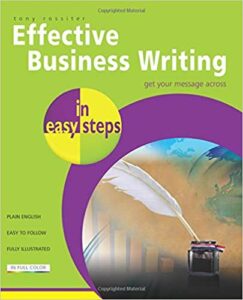Never Use 2 Words Where 1 Will Do

“However good a sentence is, you can often find a word or two, or a phrase, that can be deleted without any loss of meaning,” Tony Rossiter advises in “Effective Business Writing”. There are two specific ways to avoid this sort of duplication, he adds:
Dump qualifiers.
Qualifying adjectives and adverbs (like the first in each of these two-word expressions) should be dumped:
- important essentials
- past history
- quite impossible
- advance warning
- usual habit
- future prospects
Insert full stops.
By way of making content easier to read, use short sentences without extra subordinate clauses, Rossiter continues. In this case the arithmetic is reversed – better to use two direct, easy to understand, sentences rather than one that is overly complex and difficult to follow.
“Don’t get lost in long sentences,” warns business writing expert Lynn Gaertner-Johnston. “In business writing, readers want a short, clear path to understanding.” In place of the long sentence “I hope you will be able to attend, and if you need more information, please call or email me, and I will be glad to help you”, Gaertner-Johnston suggests using three short sentences. Don’t forget to “take a breath,” she advises bloggers, and give your reader one, too.
For any document to be easily understood, the writing style has to be clear, simple, and direct, we teach at Say It For You. Lyricist Sean Hartley says the same thing about song lyrics – they need to be original, yet succinct in a way that appears effortless. For blog content writers, simplicity involves sticking to the point, using largely familiar word combinations and sentence structure.
Ironically, Tony Rossiter ignores his own advice, summing up the matter of effective sentence writing by using a qualifier – Don’t write in impenetrable gobbledygook!

Leave a Reply
Want to join the discussion?Feel free to contribute!